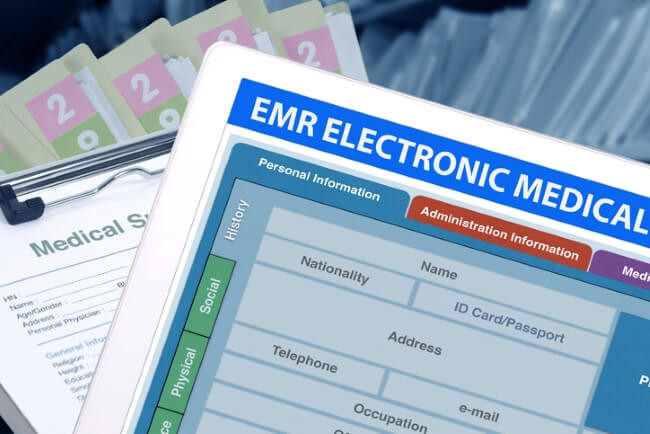The Roll of Data in Healthcare
| 11-04-2020 | By Moe Long
The world has evolved to where every company is a data company. While the likes of Facebook and Netflix might offer services like social media and streaming, the cruz of the company is data. And there’s a particular niche where data is proving even more helpful: healthcare. Find out about the role of data in healthcare!
Big Data in Healthcare
With a rise of the Internet of Things (IoT), more monitoring is possible. As such, there’s an influx of analytics. Enormous amounts of information comprise big data where an influx of info is too large for a traditional database to handle. In healthcare, big data has become increasingly important, particularly with the popularity of biomedical practices such as 3D printing and even prosthetics. Healthcare as a whole is massive, comprised of a slew of professions and components. There’s the patient, medical professional, healthcare companies, and more. An end-to-end healthcare process encapsulates everything from scheduling appointments to payment plans, diagnosing, and follow up appointments. Electronic health records (EHRs) have made data aggregation much easier.
However, the volume of information collected by EHRs is staggering. The National Institute of Health (NIH) has an All of Us research program that’s invited one million individuals across the United States to participate in a health database. Electronic Health Records include image scans, prescription information, blood tests, demographic info, and loads of other data. Processing that draws out valuable insights, but it’s quite a challenge.

But this overwhelming amount of data can prove incredibly actionable. Big data has been used to target opioid abuse. Data scientists processed pharmacy information and claims data to identify potential risk factors for opioid abuse for predictive analytics, or hypotheses about future events based on concrete data sets. And with telemedicine steadily increasing, there’s a lot of information being constantly collected. Even most phones feature sensors for tracking GPS or heart rate. Wearable tech offers a means of tracking patient heart rate, detecting falls and monitoring medicine intake.
Stopping Pandemics With...Data?
Data plays a key role in providing actionable insights. For instance, aggregating and crunching information may be used to combat data. Take coronavirus. Having access to tests provides a real-time look at the spread of COVID-19. But graphs might differ based on data source. While Johns Hopkins University utilizes data from over 17 sources such as the World Health Organization and European Centre for Disease Prevention and Control, other organizations like COVID Act Now offer conflicting models since their data hails from different sources.
Where this comes into play is the ability to predict the spread of a pandemic like coronavirus, then adjust accordingly. An educated guess of when peak positive COVID-19 cases may hit an area allow for preparations such as importing supplies or converting spaces into makeshift medical treatment centres. Data may even be used to analyze the politics of COVID-19 to map the spread.
In many areas, stay at home orders were issued. And data proved crucial in enforcing those mandates. Whereas some locales warned community members to shelter in place, others implemented draconian measures to ensure social distancing. Cellular data has been shared with many governments to monitor the spread of coronavirus. Taiwan used geo-fencing with cell data to track the movements of quarantined individuals. In China, law enforcement received alerts based on cellular information, and South Korea created a publicly available map of coronavirus patients.
There’s certainly an ethical question about tracking users with cell phone data or using ad data to find clusters of people. But in spite of the Orwellian vibe, the trend is clear. Data plays a huge role in healthcare, whether that’s providing predictive analytics about at-risk groups, monitoring patients, improving the end-to-end payment and health insurance experience, or attempt to slow and stop the spread of a pandemic.
The Role of Data in Healthcare - Final Thoughts
It’s said that virtually every company is a software company, and the same could be claimed of the healthcare industry. Data has a huge impact on analysis and decision making. Aggregating that information is increasingly easy with the IoT devices, EHRs, wearables, and even cell phone or advertisement data. It’s a trend on the upswing that’s poised to continue and become more efficient.
How are you seeing healthcare data being used to glean valuable insights?

